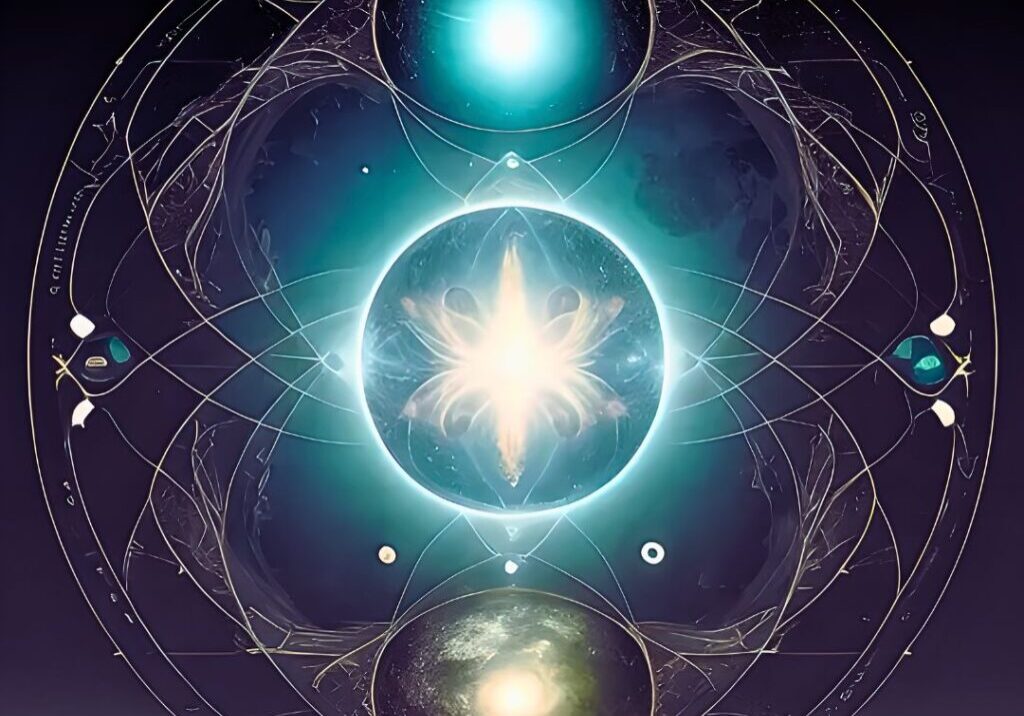The Risen Christ and the Power of Love
Image: Pysanky (Easter eggs), Kiev, Ukraine
 It is day 45 of the Russian War against Ukraine. This evening I am reflecting on the atrocities inflicted upon the Ukrainian people in a particular way, a personal way, because Ukrainian culture is part of my background. I was taught by Ukrainian Sisters in High School and later joined a Byzantine-rite monastery. I studied four years of Slavonic in High School (although I remember very little) and was inculcated in the traditions of the Ukrainian people. In my Senior year, I took up traditional Ukrainian dance, primarily because I liked the clothes, but also because Ukrainian dancing is beautiful and energetic. When I was not dancing, I was singing in Ukrainian, praying in Ukrainian, eating Ukrainian food such as holubtsi, borscht and pieroghi’s and, as a typical high student, practicing how to insult a classmate in Ukrainian. Some of my most poignant High School memories, however, were the stories told of families emigrating from the Ukraine to the U.S. after the horrors of the Stalin regime during the Second World War. One Ukrainian Nun recounted how her family left everything behind and emigrated to Canada with nothing more than a suitcase and a coat. The hard life of the Ukrainian people was countered by the warm love shared among family and community, in which faith played a central role. Indeed, despite the revelry and antics of my Ukrainian high school years, it was going to Mass every morning in Old Slavonic that awakened in me a deep sense of the mystery of God.
It is day 45 of the Russian War against Ukraine. This evening I am reflecting on the atrocities inflicted upon the Ukrainian people in a particular way, a personal way, because Ukrainian culture is part of my background. I was taught by Ukrainian Sisters in High School and later joined a Byzantine-rite monastery. I studied four years of Slavonic in High School (although I remember very little) and was inculcated in the traditions of the Ukrainian people. In my Senior year, I took up traditional Ukrainian dance, primarily because I liked the clothes, but also because Ukrainian dancing is beautiful and energetic. When I was not dancing, I was singing in Ukrainian, praying in Ukrainian, eating Ukrainian food such as holubtsi, borscht and pieroghi’s and, as a typical high student, practicing how to insult a classmate in Ukrainian. Some of my most poignant High School memories, however, were the stories told of families emigrating from the Ukraine to the U.S. after the horrors of the Stalin regime during the Second World War. One Ukrainian Nun recounted how her family left everything behind and emigrated to Canada with nothing more than a suitcase and a coat. The hard life of the Ukrainian people was countered by the warm love shared among family and community, in which faith played a central role. Indeed, despite the revelry and antics of my Ukrainian high school years, it was going to Mass every morning in Old Slavonic that awakened in me a deep sense of the mystery of God.
One thing I learned from the Ukrainian people was the power of faith. The hardships of life, the trials and tribulations of persecution, and the constraints of freedom could not snuff out the centrality of God’s love and commitment to God’s promises. Faith was a serious matter. One of my most memorable experiences in the monastery was going on retreat with Fr. Walter Ciszek, the Jesuit priest who was sent on as a missionary to Soviet-occupied Poland in 1939, found his way into Russia, arrested in 1941 as a Vatican spy, and held in solitary confinement for five years in Lubianka prison, which was operated by the Soviet secret police. Upon his release from prison, Fr. Walter was sentenced to twenty-three years of hard labor in Siberia. His family, friends and community gave him up for dead. But Fr. Walter remained true to his Jesuit commitment and continued to serve as a priest underground, while living in the harsh conditions of exile. After he served his years of slave labor, he was released within restricted Russian borders; eventually, he was able to send a letter back home to his family. In 1963 he was exchanged for a Russian spy and returned to his religious community at Fordham University.
In his books, With God in Russia and He Leadeth Me, Fr. Walter recounted his journey through darkness and doubt, especially during his years of solitary confinement. While in Lubianka prison he descended into darkness–the cramped prison cell, the endless interrogations, and the deafening silence in the endless solitude of his confinement—led him at times to doubt and despair. However, his deep commitment of faith never disappeared, and one day, in an unexpected way, a ray of light radiated from within, and in a moment of grace, he surrendered himself completely to God. He wrote:
There was but a single vision, God, who was all in all; there was but one will that directed all things, God’s will. I had only to see it, to discern it in every circumstance in which I found myself and let myself be ruled by it. God is in all things, sustains all things, directs all things. To discern this in every situation and circumstance, to see His will in all things, was to accept each circumstance and situation and let oneself be borne along in perfect confidence and trust. Nothing could separate me from Him, because He was in all things. No danger could threaten me, no fear could shake me, except the fear of losing sight of Him.
The future, hidden as it was, was hidden in His will and therefore acceptable to me no matter what it might bring. The past, with all its failures, was not forgotten; it remained to remind me of the weakness of human nature and the folly of putting any faith in self. But it no longer depressed me. I looked no longer to self to guide me, relied on it no longer in any way, so it could not again fail me.
By renouncing, finally and completely, all control of my life and future destiny, I was relieved as a consequence of all responsibility. I was freed thereby from anxiety and worry, from every tension, and could float serenely upon the tide of God’s sustaining providence in perfect peace of soul.” (He Leadeth Me, 79-80).
From that moment on, Fr. Walter made God the singular focus of his heart. By re-centering his heart in the heart of God, he found peace, even amidst the uncertainty of his future. One could describe his life as a long via dolorosa of twenty-three years. The human toil of slave labor, the poor conditions of the camp, and the constant threat of death, constantly challenged his faith; yet he persevered in daily prayer, like a rhythmic heartbeat. Like Jesus in the Garden of Gethsemane, Fr. Walter surrendered himself entirely to the power of God’s merciful love. Trusting in God’s love, Fr. Walter found peace and the will to live. This Jesuit priest, who was considered dead for over two decades, was kept alive by the power of faith.
When I think of Fr. Walter and my Ukrainian Sisters, I am reminded of the centerpiece of Christian faith: the Resurrection of Jesus Christ. This is not a magical event but a belief in the power of matter to be transformed into what is holy and Godly. With God all things are possible, precisely because nothing in this world, including suffering and death are outside the embrace of God’s love. God’s willingness to suffer unto death begins in love. On the cross not only is suffering taken up in the life of God; history is too. God suffers from the love which is the superabundance and overflowing of God’s being. The German theologian Jurgen Moltmann said that a God who cannot suffer, cannot love. The cross is key not only to human brokenness, but to God as well. The cross reveals to us the heart of God because it reveals the vulnerability of God’s love. Cardinal Walter Kasper wrote that on the cross the incarnation of God reaches its true meaning and purpose. The entire Christ-event reaches its full disclosure in the cross, where we see God’s self-renouncing love embodied with ultimate radicalness.This self-renunciation or self-emptying of God is not abandonment of divine power or a de-divinization of God. . .but the revelation of the divine God. God need not strip himself of divine omnipotence in order to reveal his love. Rather, only an almighty love can give itself wholly to the other and be a helpless love.
What does the helplessness of God’s love mean for us? Simply, that divinity is no longer a power over us but now within us. God’s love becomes the human power to love, and this power to love, welling up from within, can face all obstacles, including the fear of death, because one no longer fears the brutality of humanity or the darkness of uncertainty. Faith in the power of God’s love is faith in the future fullness of life. Those who remain steadfast in faith, can see a dim light shining through the dark clouds of human chaos. They are awakened to the presence of God and feel the divine heart beating amidst the ruins of power and destruction. This beating heart of divine love enkindles in them the will to live, not merely survive, but to be victorious over all human powers that aim to destroy. This meeting of God, in the face of death, is Resurrection.
As we come to the end of the Lenten season, I am reminded of the change of tones in the Byzantine Rite; the sonorous and mournful chants will be transformed by the paschal mystery into joyful exclamation, Christos Voskrese! Christ is risen from the dead — by death he conquered death and to those in the grave he granted life. We are invited into the darkness of the tomb where Jesus was buried and experience the death of God; to know that death does not have the last word because God is life itself. This is the great mystery of divine love. Only when Christ rises from the dead in all of us will this world know peace; for then love alone will prevail and the whole cosmos will sing for joy.
 View print-friendly version
View print-friendly version
24 Comments
Related Posts

Trinity and Personhood
I have been teaching a graduate course on the Trinity this semester and it has impelled me to think anew about the Trinity and what the implications of the Trinity…


Thank you Ilia, for your own humility and sharing such a story of faith in the face of severe adversity. I am inspired by Father Walter through his ceasing to look to self to guide him, ‘so it could not again fail me.’ And ‘from that moment (of awareness of self motive) he made God the singular focus of his heart ‘- and he persevered in prayer, like a rhythmic heartbeat.
As a process theologian I find it difficult to hold that “God is in all things, sustains all things, directs all things. To discern this in every situation and circumstance, to see His will in all things.” Is all the evil Putin is currently doing God’s will? A process theologian would say no, God in embodied in all the suffering but does not cause it, and does not will it. Nicolai Berdyaev was a Russian theologian who mirrored the process theology of the West, and did not believe all the evil in the world was God’s will either. Which is why we should not accept it.
How utterly devastating to see the daily fight for life each day on TV reports as the Ukraine people struggle for their freedom to be. With death and destruction all around them, the will to live, to win, to survive eminates from their eyes and words of love for their country.
Hi there
I remember talking to you about your High School Experience (at Winter Park) and the fact that it was in a few blocks from me in Tuxedo Park. It is so interesting to learn that these nuns were Ukrainian. How terrible it must be for them at this time, and I wonder if those who taught you are still there.
I can’t imagine having the faith of Father Walter, and it’s so very hard for me to accept man’s cruelty to man, and find solace in his life story. However as I watch this war on TV and see the face of God in the beauty and strength of those who’s lives have been destroyed and read your message, I know that I need to unpack so many feelings and resistance, and to continue to try to accept with my heart what I THINK AND HOPE I accept in faith. I’s hard!
Have a Blessed Easter!
THANK YOU for the infusion of Love in both the colorful easter eggs and Father Walter’s story of surrender to love in suffering.
Many years ago I read With God In Russia. Thanks for the reminder of this powerful book. Easter Blessings.
Thank you for this deep reflection during the Holy Week. May Fr. Walter’s sufferings remind me of my own need to surrender to the love of God that is more powerful than I rely on at times. An incredible story you shared thank you
Fr. Walter touched me through his two books many years ago when I was first beginning my journey toward a deeper faith. I have sense then always been seeking that surrender to God’s will. My prayer is always that I am granted the grace to keep trying!
Such a moving tribute to the Ukranian spirit of faith, hope and love in good and bad times. Fr. Walter’s story of suffering and faith is incredibly inspiring. I look to his complete surrender to God’s will however it presents itself in daily life as the way to being one with all that is. May I realize as he did, reliance on self is futile.
Thank you, this was an Easter Gift and through your story of Fr Walter, I find renewed longing to surrender completely. I do know doubt and despair and I am blessed with daily signs of a hand held out. Your story was the hand this morning. Blessings Serena